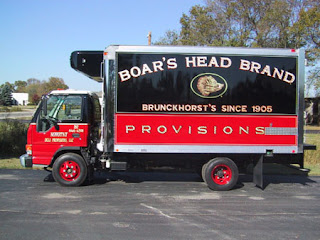Cadbury Pulls Products
Cadbury pulls melamine-laced chocolate from China
Update: Product found in US (Connecticut) HONG KONG (AP) — British candy maker Cadbury announced a recall Monday of chocolate made in its Beijing factory after it was found to contain melamine, the industrial chemical that has sickened tens of thousands of Chinese children.
The 11 recalled items were sold in parts of Asia and the Pacific, the company said in a statement. Cadbury's chocolates sold in the United States were not affected, said a spokesman for Hershey's, Cadbury's sole U.S. distributor.
Meanwhile, Kraft Foods, the maker of Oreo cookies, and Mars, the maker of M&Ms and Snickers candy, questioned the findings of Indonesian tests that identified melamine in samples of their products made in China.
Both Kraft Foods and Mars said they would comply with an Indonesian recall but planned to conduct their own tests and look into the possibility the tainted products were counterfeits.
Melamine-laced baby formula and other dairy products in China have been blamed for sickening nearly 54,000 children and leading to four infant deaths. The industrial chemical, which is high in nitrogen, is believed to have been added to watered-down milk to mask the resulting protein deficiency and fool quality tests.
Preliminary tests showed melamine in Cadbury chocolates produced at the candy maker's Beijing factory, but it was too early to say how much of the chemical was in them, said a Cadbury spokesman who declined to be identified because of company policy.
Another official reached through the company's London office said there was no way the contaminated chocolate could find its way into other countries because the Chinese factory only supplies Australia, Taiwan, Nauru, Hong Kong and Christmas Island.
"That factory in Beijing only exports to those markets. It's only a small factory," said the official. He said Chinese production makes up only 0.5 percent of Cadbury's global sales, and the recalled items are "less than that because it's only chocolate."
The recalled products included Cadbury Dark Chocette, Cadbury Eclairs, Cadbury Dairy Milk Chocolate, Cadbury Dairy Milk Hazelnut Chocolate, Cadbury Dairy Milk Cookies Chocolate and Cadbury Hazelnut Praline Chocolate.
In the United States, Hershey's spokesman Kirk Saville said the Cadbury distributor "has never purchased milk, including powdered milk, from China," and that he was "positive" no Hershey's suppliers receive milk products from the country.
Indonesia's Food and Drug Monitoring Agency said tests last week found melamine in a dozen products distributed nationwide, including M&Ms, Snickers bars and Oreo wafers.
Manufacturers Kraft and Mars questioned the findings.
"We don't use any milk ingredients from China in any Oreo products, no matter where they are made or sold," said Kraft spokeswoman Claire Regan.
Tod Gimbel, Kraft's director of corporate affairs for the Asia Pacific, said the company "was trying to understand what methodology was used" in Indonesia's testing.
Mars, in a statement on its Web site, called the Indonesian results "completely inconsistent" with test findings from other government and independent labs in Asia and Europe.
"The vastly different results give Mars significant reason to question the validity of the Indonesian laboratory results," the company said.
So far, only a local agency has checked the products for melamine, but the levels found were considered very high.
No level of melamine deliberately added to a food product is legal in the United States, according to the Food and Drug Administration.
But the agency said it is conducting a health risk assessment to try to determine if there is a minimal amount that would be acceptable in cases where the chemical finds its way into a product through some other means. For example, melamine could be present in the meat or milk of an animal that was fed tainted feed or it could find its way into food processed in a factory.
Some experts in Asia say small amounts of melamine, which is used to make plastics, may be transferred during food processing.
Guidelines in Hong Kong and New Zealand say melamine in food products is considered safe at 2.5 parts per million or less, though Hong Kong has lowered the level for children under 3 and pregnant or lactating women to 1 part per million.
In China, the government continued its investigation into questionable milk sources.
Police raided dairy farms and milk purchasing stations in northern China, detaining 22 people accused of being involved in a network that manufactured, sold and added melamine to milk, the official Xinhua News Agency reported Monday. Police also seized more than 485 pounds of the chemical.
Chinese officials had previously arrested at least 18 people and detained more than two dozen suspects.
Asian countries continued to tighten controls on Chinese dairy products.
Myanmar's Commerce Ministry said all Chinese dairy imports had been barred since last week, according to the government affiliated weekly Myanmar Times — a significant move because China is the country's biggest trade partner. Chinese dairy products are widely sold in impoverished Myanmar, though there have been no reported cases of illnesses.
Associated Press writers Ricardo Alonso-Zaldivar in Washington, Carley Petesch in New York and Raphael Satter in London contributed to this report.
Cadbury is not the only company to have such an issue, but from the lead in toys, poisoned dog food, and countless counterfeits such as toothpaste, shampoo, coffee, etc. stealing the integrity of companies and their products, poisoning the people with items detrimental to public health, I wonder who makes the conscious decision (or uneducated) to perform such actions? How do you feel we could improve the quality (and not injure the cost) aspects of goods produced in Asia (and other developing countries such as India, Central America, Mexico, Philippines, etc.), and also maintain a positive relationship/balance with the countries/economy?


Comments